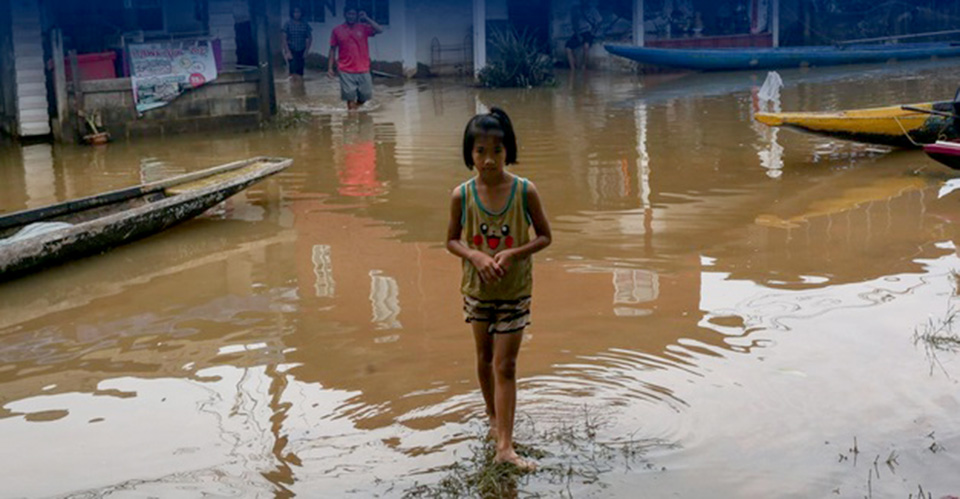
Children living in the Northeastern and Southern regions of Thailand are reported to be at high risk for their well-being and health development due to environmental hazards and climate change.
According to a recent impact assessment report by the United Nations Children’s Fund (UNICEF), the health and development of children in the Northeast and South – especially in provinces of Ubon Ratchathani, Nakhon Ratchasima, Sri Sa Ket, Nakhon Sri Thammarat and Narathiwat – have a high chance of being affected by environmental changes.
The report noted that children, whose immune systems are considerably more vulnerable to environmental disasters such as floods, heat waves, and drought than other age groups, may suffer from water contamination, food insecurity, and the spread of diseases.
UNICEF Representative for Thailand Kyungsun Kim voiced concern over this assessment and warned that if this issue is not addressed, children may face greater risk in other areas that impact their lives and well-being. She also said the issue would worsen their access to education, essential services, and food supplies, resulting in sicknesses, malnutrition, stress, anxiety, and even death, as well as long-term harm to their development and well-being.
According to Kim, it is critical to establish policies that consider the needs of children and young people and include steps to protect them from the effects of climate hazards. She said it is also important to raise environmental awareness, provide knowledge, and offer skills related to climate change to all groups, especially young children so they understand the situation and can protect themselves and take climate action.
Additionally, the UNICEF representative emphasized the importance of serious commitment and informed approaches to this issue to safeguard the lives and future of the next generation. (NNT)





